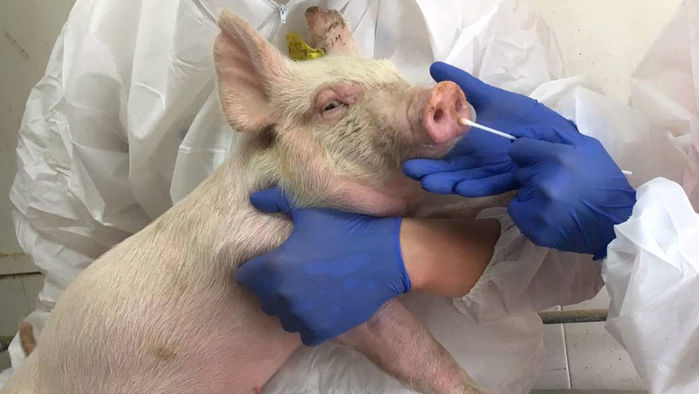While everything looks like has been torn apart by COVID-19 that was first discovered in China, Scientists have spotted yet another Chinese strain of a new Potential viral (G4 H1N1) infection.
According to Scientists, the strain with glue like symptoms could possibly become a pandemic worse that 2009 H1N1 swine flu pandemic.
The G4 EA H1N1 as referred to as by Scientists is being investigated after few cases found in China.
The virus is a combination of three flu strains, the scientists found: one from European and Asian birds, the flu strain that caused the 2009 swine flu outbreak, and a North American flu that has genes from bird, human, and pig flu viruses.
The new strain could pose a major threat if it jumps to humans, the researchers warned, though it hasn’t yet.
Scientists say samples from Chinese workers in abattoirs and the swine industry have been found to be infected with the new virus.
The researchers are concerned that it could mutate further so that it can spread easily from person to person, and trigger a global outbreak.
While it is not an immediate problem, they say, it has “all the hallmarks” of being highly adapted to infect humans and needs close monitoring.
As it’s new, people could have little or no immunity to the virus.
The scientists write in the journal Proceedings of the National Academy of Sciences that measures to control the virus in pigs, and the close monitoring of swine industry workers, should be swiftly implemented.
The new flu strain that has been identified in China is similar to 2009 swine flu, but with some new changes.
So far, it hasn’t posed a big threat, but Prof Kin-Chow Chang and colleagues who have been studying it, say it is one to keep an eye on.
The virus can grow and multiply in the cells that line the human airways.
Current flu vaccines do not appear to protect against it, although they could be adapted to do so if needed.
Prof Kin-Chow Chang, who works at Nottingham University in the UK, told the BBC:
“Right now we are distracted with coronavirus and rightly so. But we must not lose sight of potentially dangerous new viruses. We, however, should not ignore it.”
Prof James Wood, head of the Department of Veterinary Medicine at the University of Cambridge, said the work “comes as a salutary reminder” that we are constantly at risk of new emergence of pathogens, and that farmed animals, with which humans have greater contact than with wildlife, may act as the source for important pandemic viruses.
















